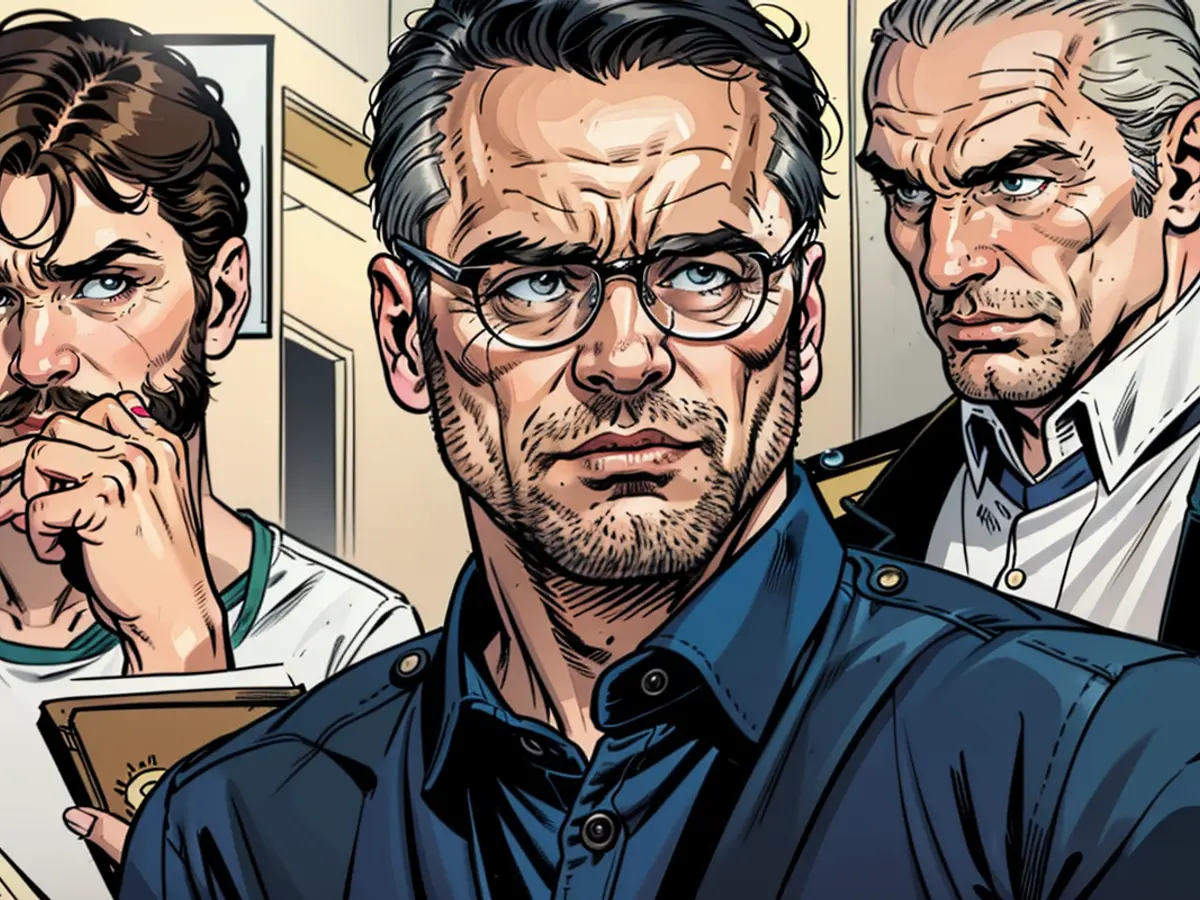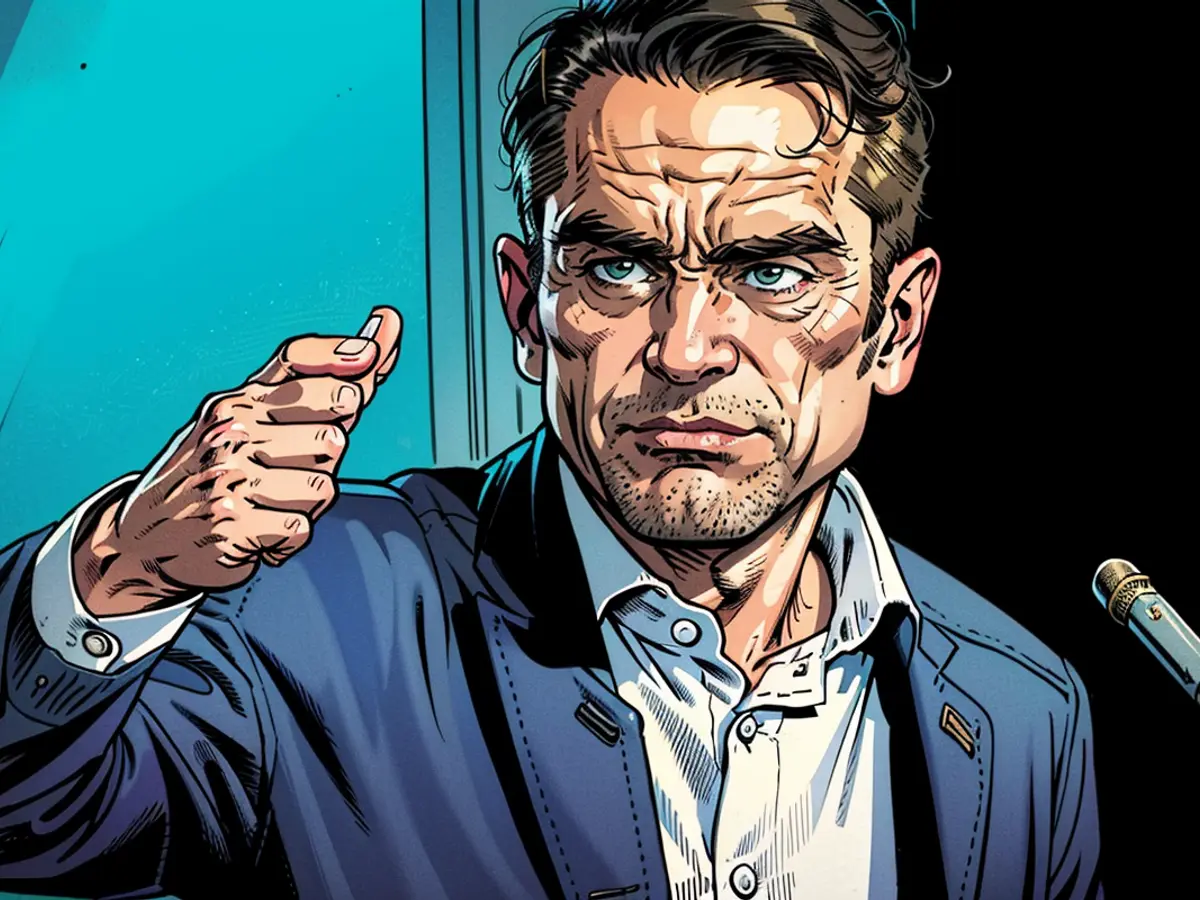CDU prepares for short-term election campaign
Does the traffic light coalition come to an end? Or is it possibly still possible for there to be elections this year? CDU General Secretary Carsten Linnemann believes it's possible but not likely. He believes "one third" there could still be elections this year, while "two thirds" it will be on schedule next year, he said at the Konrad-Adenauer-Haus in front of journalists. If Chancellor Olaf Scholz were to put a confidence vote in the Bundestag and lose, a federal election would have to be held. Currently, Scholz is negotiating with Green Vice-Chancellor Robert Habeck and FDP leader and Finance Minister Christian Lindner about the budget for the coming year. If there is no agreement, the traffic light coalition could break apart.
Linnemann said the CDU could launch a Bundestag election campaign within ten weeks. "We will be very quick in being able to present a Wahlprogramm," he said. The new basic program, which was adopted at the party congress at the beginning of May, provides the best conditions for this. Linnemann spoke together with the Brandenburg CDU chairman Jan Redmann, after the CDU had spent two days in the Berlin party headquarters in a closed-door session. In addition to analyzing the European election results, they spoke extensively about the upcoming state elections in Thuringia and Saxony (both on September 1st) and in Brandenburg (September 22nd). In all three states, the AfD is leading in the polls.
Redmann lamented that in Eastern Germany, many have lost faith in politics overall. This is mainly due to the politics of the traffic light coalition. The CDU also needs to rebuild lost trust. In particular, in the areas of refugee and education policy, as well as internal security, there are major doubts about whether the state is still capable of acting. This provides an opportunity for "enemies of democracy" and populists. At the European election on June 9th, the AfD was the strongest force in all eastern German federal states.
Redman made several demands for internal security in the campaign - one of the main themes. He reconfirmed his demand to lower the age of criminal responsibility to 12 years old. Currently, it is 14 years old. It's not about putting children in prison, said the 44-year-old, but about implementing educational measures. Some children under 14 have already committed a series of crimes, according to Brandenburger. However, there is no way to stop it. In France, Britain, and Ireland, there is already a lower age of criminal responsibility than in Germany.
He also demanded a stricter approach in juvenile criminal law. This is currently applied in most cases for offenders under 21 years old, he criticized. Instead, it should already apply to 18-year-olds. The person coming into contact with the German legal system for the first time should not get the impression of laissez-faire, said Redman. For stabbers, he demanded a minimum sentence of one year.
Faeser should clarify her statement
Linnemann previously criticized Interior Minister Nancy Faeser for her reaction to the alleged manslaughter in the North Rhine-Westphalian Bad Oeynhausen by a Syrian. The suspect had come to Germany through family reunification in 2015. Faeser had demanded that more be spoken about this form "of unsuccessful social integration". Linnemann said this was "completely unacceptable" and a "victim-perpetrator reversal". He did not explain in what way this was the case. He demanded that the minister clarify what she meant by her statement. Linnemann said that uncontrolled migration was overburdening Germany in many places and was a security risk.
Redman said, similar to what had happened in the French parliamentary elections, the AfD was also strong in Eastern Germany in structurally weak, rural areas. Due to mass unemployment in the 90s, many had worked their way out of precarious situations. Now, the fear was great that Germany could economically lose the connection. "They feel on a height and see an abyss in front of them," said Redman. Considerations like those of the German Railways, IC stops in Thuringia being closed or even possible hospital closures intensified the feeling of dependence. He announced that in the campaign he would also go to small places. There, he wanted to place a wooden bench at the church tower to talk to the people.
- Carsten Linnemann, the CDU General Secretary, mentioned the possibility of state elections in Saxony and Brandenburg being held this year, but believed it to be unlikely.
- During their closed-door session in Berlin, Linnemann and Brandenburg CDU chairman Jan Redmann discussed the state elections in Thuringia, Saxony, and Brandenburg, all of which are scheduled for September.
- Redmann criticized the politics of the traffic light coalition, particularly in areas like refugee and education policy, and internal security, stating that it had led to a loss of faith in politics in Eastern Germany.
- Linnemann previously criticized Interior Minister Nancy Faeser for her comments on a Syrian's alleged manslaughter in Bad Oeynhausen, stating that her remarks were a "victim-perpetrator reversal" and demanded clarification.









